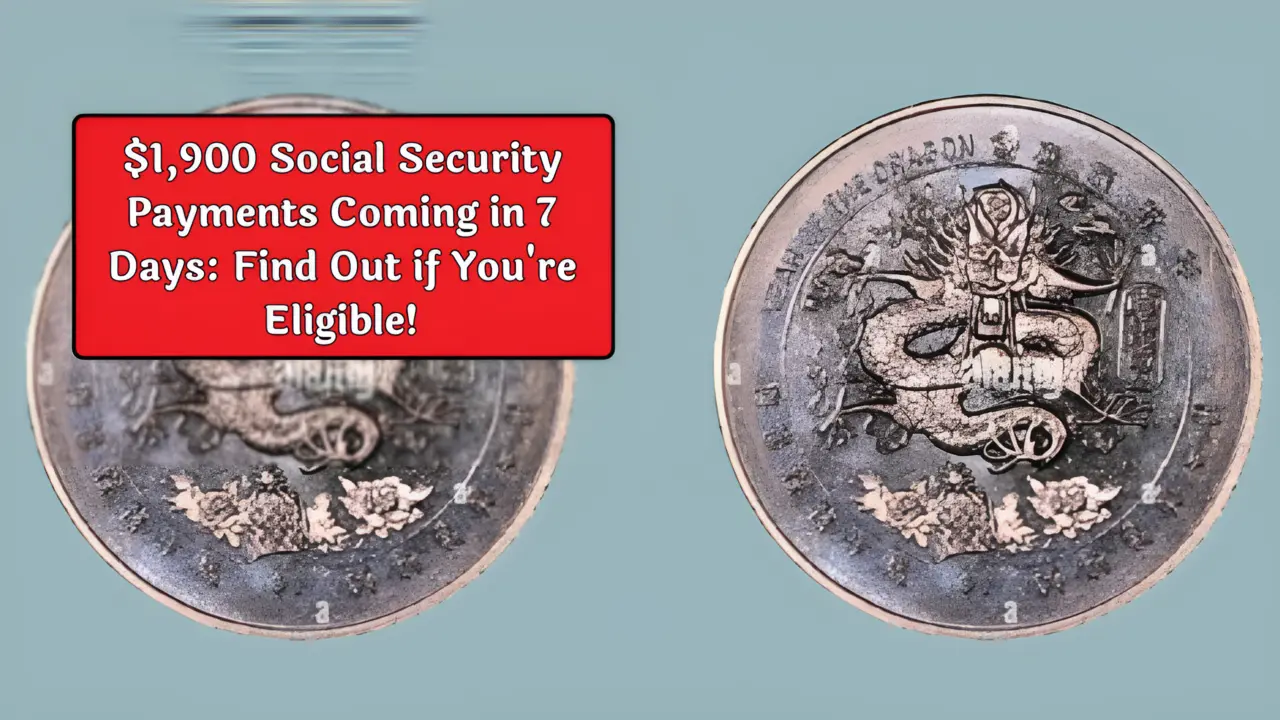Big news for Social Security recipients—$1,900 checks are set to arrive in just 7 days! If you’re among the millions of Americans who depend on Social Security benefits, this payment could be a significant boost to your finances. The timing of these checks and the eligibility criteria may have you wondering if you’re on the list to receive one. Let’s dive into the details of this exciting update and help you find out if you’ll be receiving your payment soon.
What Are These $1,900 Social Security Checks?
The $1,900 payments are part of an ongoing initiative to ensure Social Security recipients receive consistent and timely support. These checks are designed to help supplement the income of those who rely on Social Security benefits, whether they’re retirees, disabled individuals, or others who qualify for assistance.
This payment amount is one of the largest checks some recipients will have seen in years. It’s important to note that not all Social Security recipients will receive exactly $1,900, as the amount you are entitled to can vary based on several factors, including your earnings history, benefit type, and whether you qualify for other support programs.
When Will the $1,900 Social Security Payments Arrive?
These payments are scheduled to be delivered in just 7 days, so if you’re eligible, be sure to check your account or mailbox. Payments are typically issued according to your birth date, so depending on your situation, your check may arrive on a specific date.
Who Will Receive the $1,900 Payments?
The $1,900 checks are part of a broader initiative to ensure that eligible Social Security recipients get the financial help they need. However, not every recipient will receive exactly $1,900. The amount can depend on various factors, such as:
- Your earnings history: Social Security benefits are calculated based on your lifetime earnings. Those who paid into the system for a longer period or had higher earnings may qualify for higher payments.
- The type of benefits you receive: Whether you’re getting Social Security retirement, disability, or survivor benefits can affect your payment amount.
- Additional support: Some recipients may also be eligible for extra payments through other programs like Supplemental Security Income (SSI), which could increase the total amount you receive.
How Can You Check If You’re on the List to Receive the $1,900 Payment?
The easiest way to check if you’re eligible for the $1,900 Social Security check is to log into your my Social Security account on the official Social Security Administration website. Here you can view your payment schedule, including upcoming checks and the amount you’re expected to receive.
If you don’t have an online account, you can also contact the Social Security Administration directly or check your bank account or mailbox for confirmation of the upcoming payment.
FAQs
1. Who qualifies for the $1,900 Social Security payment?
To qualify for the $1,900 check, you must be a Social Security recipient. The exact amount you receive depends on your earnings history, the type of Social Security benefits you’re eligible for, and other factors.
2. When will the $1,900 checks arrive?
The $1,900 checks are set to arrive in 7 days. Payments are issued based on your birth date, so your payment may arrive on a specific date depending on your individual circumstances.
3. How can I check if I’m getting the $1,900 payment?
You can check your eligibility by logging into your my Social Security account on the SSA website. Alternatively, you can check your payment schedule through your Social Security account or contact the SSA directly.
4. Will everyone receive $1,900?
Not all Social Security recipients will receive exactly $1,900. The amount you receive depends on factors like your lifetime earnings, the type of benefits you qualify for, and whether you are eligible for additional assistance programs.
5. How is the $1,900 payment determined?
The amount of your Social Security payment is based on your earnings history and the specific type of benefits you receive. Higher earners and those with more years of contributions may receive larger payments.

